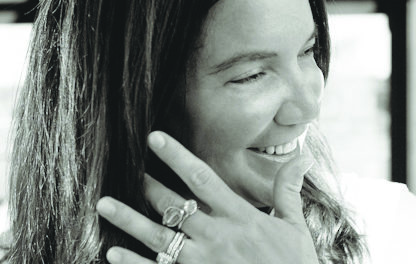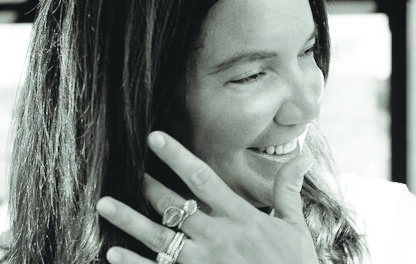 Congratulations to all my Episcopal, Catholic, Lutheran and many Protestant friends and family. You are one week in with only a little over five to go. It won’t be long, Livi, until you can cover everything back up again with ketchup so you have no idea what you’re eating anyway. Margot, it’s only a matter of time before you can start pulling the white things out of your onion rings and eat only the fried crispy goodness again.
Congratulations to all my Episcopal, Catholic, Lutheran and many Protestant friends and family. You are one week in with only a little over five to go. It won’t be long, Livi, until you can cover everything back up again with ketchup so you have no idea what you’re eating anyway. Margot, it’s only a matter of time before you can start pulling the white things out of your onion rings and eat only the fried crispy goodness again.
Me? Well, it seems I have given up stuff I didn’t even know about.
“This is tougher than I thought,” Alicia tells me, signaling for the check last week at lunch. “I put Balsamic Vinegar on everything, even regular old vinegar. What about you, what’d you give up this year for Lent.”
“My wallet, it seems,” I tell her, while rummaging around in my purse. “Looks like I’ll owe you one.”
But seriously, I sometimes wonder if people, including other Christians, think we’re little nuts because what’s the point in sacrificing something for only six and a half weeks out the year when you should be living like Christ for all 54. I guess we just really like symbolism. It’s not so much what and how long we give up something we can’t live without. It’s to see if we can actually do it to some sort of completion.
On one level, Lent is about celebrating the season of Easter. After the debauchery of Fat Tuesday and the repentance of Ash Wednesday, this is our way of reflecting on the last weeks of Christ’s life and all the ultimate sacrifices he gave for us, ending with Easter, the day of worship that represents his rebirth and ascension into Heaven.
But it also symbolizes the 40 nights and days Jesus went into the desert before he began his ministry. This was the most critical part of his life on earth, the true and ultimate test if you will. He went in alone to meet the demons, the dark visions, the self-doubt, just him and him alone. If he could abstain, reject all evil, then he was the true messiah, the Chosen One.
It is said if you can cast out the demons, that’s when the angels will come. And they did.
See, Lent is about acknowledging we are not all-powerful; we are not Christ; we are not God. We are human. We have vices. We want things we don’t need. We judge. We make mistakes. We can also recognize them. This is what Lent means to me.
This year I gave up not a thing, but an emotion; a symbolic gesture if you will. I guess that’s either the Episcopalian in me or the writer, probably both. So I gave up fear, if not for all forty days, then one will do. I will face my fear of death, my fear of the unknown, my fear of failing, my fear of what other people think, my fear of what I can and cannot control. Yes, even for just one day I want to live like Jesus. I want to be fearless; fearless from the judgment of others and myself.
This is what I am doing for Lent this year. This is me without fear. Here goes:
One promise I made myself when I started writing my very first column was that whatever the subject, it would never be a divisive one. We already live in a polarizing time and place. The whole point of what I was trying to do was find common ground. My theory was there was plenty of it out there; it just needed to be dug up and tended. Yes, we all have different beliefs, differing opinions, but we have more in common than we think. That was my vision; find the common ground. Nurture it. Let it grow.
So here it is six years later. And here I am discussing the most polarizing subject out there – religion. But here I am nevertheless. It is Lent, right, and I will be fearless at least this one time. I promised myself. I promised God. Because lately, the way people have been treating the subject breaks my heart.
So now I am going to tell you a story that passes no judgment. It preaches no prejudice. It divides no one man against another because it only unites us at the very core. It’s a story that made a profound difference in my young life and is about one of the most fearless men I have ever known, my childhood priest. He was also kind and gentle and wise. He truly lived his life like Christ, up until the day he died.
Father Phelps, thank you for everything you taught me, the big lessons and the small. Thanks for all of it, every single morsel and crumb. I am wiser for eating it up, not foolish and single-minded as some may suggest. You are my hero, forever and always.
This one is for you.
I am not sure if most of you remember the scare of the AIDS epidemic in the mid-80’s. Some of y’all are too young to have even heard of it; others, like me spent our teenage years being told a sexual encounter could very well be a death sentence. We were told not to drink after people we didn’t know, that sitting on a toilet seat could bring about our demise, and who knew if something as simple as kissing might put you at a grave risk for contracting a deadly infectious disease.
Ignorance, you can argue, comes from a lack of concrete, valid information. No one in the 80s, it seems, was privy to any hard scientific data of any kind. See, the AIDS epidemic was new, and scary, and incurable, and kept coming fast and furious. Everyone was playing catch up. And it seemed to be everywhere, all at once. The one thing they could do was isolate the infected patients into groups which were predominately gay men and IV drug users. Soon after, they were confident that the virus was contracted through sexual contact and blood transference, and that every day, casual contact like kissing, touching, drinking from the same glass was all completely safe. Our fears were proven unwarranted.
But the fear was still out there, looming larger as the virus spread. Even Life Magazine ran a cover in 1985, “No one is safe from AIDS.” The damage had already been done. A whole group of people had, in a matter of a few short years, been stigmatized and deemed social outcasts for engaging in types of so-called “lewd” behavior that led to the epidemic everyone was so scared of.
Partners, mothers, father, daughters, sons woke up one day, not only having to care for their loved ones as they were dying, but had to sit by helplessly as they were ostracized and demonized as well. It was a dark time, for them, for us for believing in it all, for the lack of proper concrete information getting out there. It was fear, plain and simple. And no one knew what to do with it.
Except in my little world, there was one man who knew exactly what to do.
One Sunday, I was 14, I showed up as usual for 9am Sunday school. A man sat next to me; he was frail and very skinny. He had a few red sores around his mouth and on his wrists where his shirt sleeves where rolled up. Father Phelps introduced him to us and explained he was a gay man here in our community who had been diagnosed with AIDS. He told us not to be afraid and talked about all the myths that swirled around us every day like phantom shadows. We all prayed and asked him questions.
Was he scared?
Yes, of course.
Was he afraid of dying?
Every day. But maybe he could do something to change the way people thought about this disease. Maybe that was God’s purpose for him now.
I held his hand. I felt no fear.
I took communion with him at mass. I drank the same communion wine from the same cup. I felt no fear.
That day, Father Phelps taught us how to take a good look at our demons, our fears, face them down, and then cast them out, far away into that desert. Fear had no place here. Only love.
Yes. I will have no fear today. Yes. I believe in my priest and God and Christ and all the lessons they have taught me along the way. don’t believe in name calling or in labeling. I don’t believe in prejudice, or unkind judgments, or stigmas, either. I don’t have any room for any of that anymore.
Who has room when you are filled up with love?
“If someone is gay, who searches for the Lord and has goodwill, who am I to judge?”– Pope Francis.




